Future biotechnology could make prison a lot less expensive.


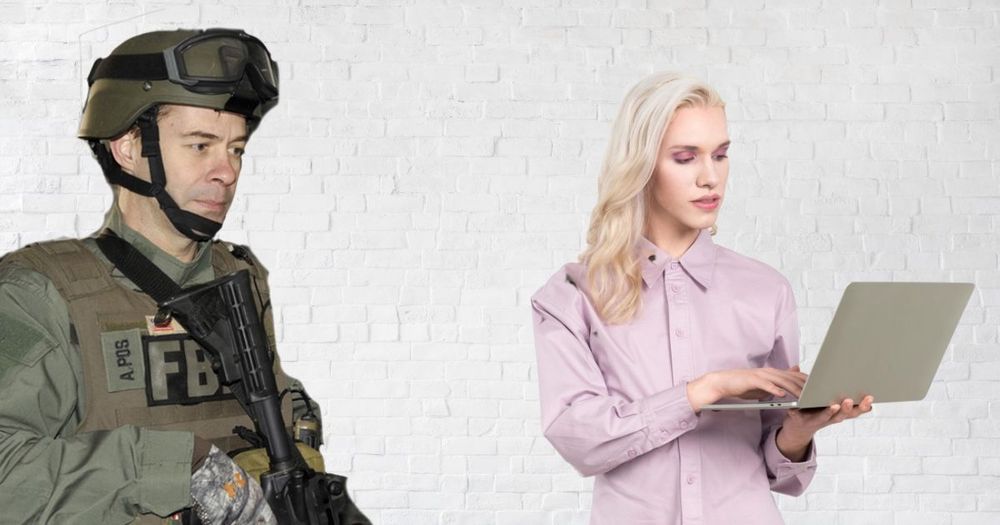
In a major blow to citizens’ privacy, the US Senate voted today to give law enforcement agencies such as the FBI and CIA the power to look into your browser history without a warrant. Thanks, Mitch McConnell.
Senators Ron Wyden from Oregan and Senator Steve Daines of Montana led the charge to insert privacy protections into the Patriot Act, which gives law enforcement agencies power for surveillance in order to maintain national security. However, the privacy protection amendment fell short by just one vote, as many senators who may have voted in favor of it didn’t show up.
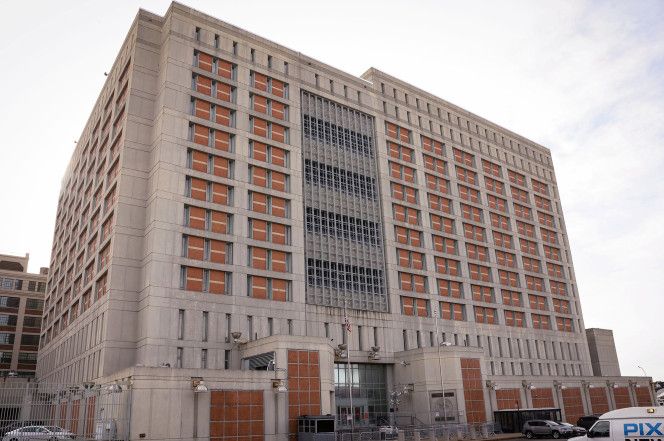
WASHINGTON — Michael Fleming never got to say goodbye to his father. He didn’t know his dad was fading away on a ventilator, diagnosed with coronavirus at the federal prison where he was serving time for a drug charge.
His father, also named Michael, was held at FCI Terminal Island in Los Angeles and died April 19. At least half the population there has tested positive, the largest known hot spot in the federal prison system. But the first word the family received of the father’s illness was the day he died, from a prison chaplain asking if the body should be cremated and where the ashes should be sent.
“They just left us all in the dark,” Fleming said in an interview with The Associated Press. “We had to find out from the news what the actual cause of death was. It was kind of screwed up.”
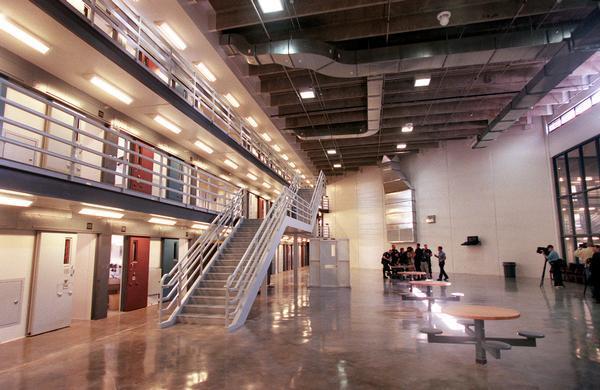
A Colorado prison is now the site of the state’s largest confirmed COVID-19 outbreak as mass testing confirms that 238 inmates at Sterling Correctional Facility have the virus.
The number of positive cases at the facility spiked as more results from the 472 tests administered last week became available. Of those tested, half were positive. Sixteen tests were inconclusive, 216 were negative and two were still pending Tuesday afternoon, Colorado Department of Corrections spokeswoman Annie Skinner said in an email.
Four of the sick inmates were in the hospital Tuesday afternoon, Skinner said.

Among the ongoing mysteries surrounding last week’s arrest of Harvard University nanoscientist Charles Lieber is the precise nature of the research program Lieber was conducting in his cooperation with Chinese researchers.
Lieber was arrested on 28 January on charges of making false statements to U.S. law enforcement officials and federal funding agencies about a collaboration he forged with researchers in China. He was released two days later on a $1 million bond. An affidavit outlining the charges against Lieber notes that in January 2013, he signed an agreement between Harvard and Wuhan University of Technology (WUT) in China. According to the affidavit, “The stated purpose of the agreement, which had a five-year effective term, was to ‘carry out advanced research and development of nanowire-based lithium ion batteries with high performance for electric vehicles.’”
Officials at WUT have not responded to requests for comment on their agreement with Lieber. But it outlines just the kind of high-tech work that U.S. prosecutors involved in efforts to investigate Chinese attempts to acquire advanced technology from U.S.-based researchers say they are concerned about. They allege that the Chinese government has used such collaborations to improperly take advantage of the federally funded research enterprise, and gain an edge in economic and military advances.

The Federal Bureau of Investigation’s New York office recently sent out an alert to local authorities warning of extremist groups it said are encouraging their members to spread the novel coronavirus to police and Jewish people, ABC News reported.
According to the news agency, the alert, which was reportedly issued on Thursday, said that “members of extremist groups are encouraging one another to spread the virus, if contracted, through bodily fluids and personal interactions.”
The alert reportedly warned that the racist groups were urging their members to go to places where Jewish people “may be congregated, to include markets, political offices, businesses and places of worship.”

O,.,o.
A team of scientists at North Carolina State University have developed a technique that could allow bricks and other common building materials to act as “cameras” that can reveal the location and distribution of radioactive materials that were once in their vicinity. Using optically stimulated luminescence, the team was able to retrieve a historical snapshot thanks to how radioactive elements like weapons-grade plutonium affected certain minerals in the materials.
On Christmas Day, 1972, the BBC aired a ghost story called The Stone Tape, which postulated that ghosts were the result of the stones in a room acting as a recording medium of past events – a stone tape, as it were. It was regarded as not only one of the best horror stories produced for television, it also popularized the hypothesis in paranormal circles known as residual hauntings or the Stone Tape theory.
Now, a North Carolina team has come up with a real-life version of the stone tape, only this time what it records is radiation, not phantoms. The idea is that building materials can act like a 3D camera that picks up residual gamma radiation signatures. This is because some minerals, such as quartz or feldspar, react to gamma rays by trapping electrons in their crystalline matrix. When stimulated, these electrons shift from their prison, releasing light that can be measured on a photomultiplier, allowing scientists to build up a picture of any strong radioactive source that might have been in the area.
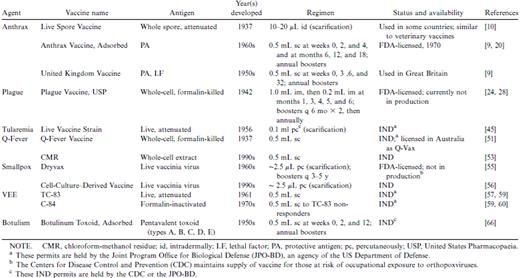
Circa 2000
The intentional release of biological agents by belligerents or terrorists is a possibility that has recently attracted increased attention. Law enforcement agencies, military planners, public health officials, and clinicians are gaining an increasing awareness of this potential threat. From a military perspective, an important component of the protective pre-exposure armamentarium against this threat is immunization. In addition, certain vaccines are an accepted component of postexposure prophylaxis against potential bioterrorist threat agents. These vaccines might, therefore, be used to respond to a terrorist attack against civilians. We review the development of vaccines against 10 of the most credible biological threats.
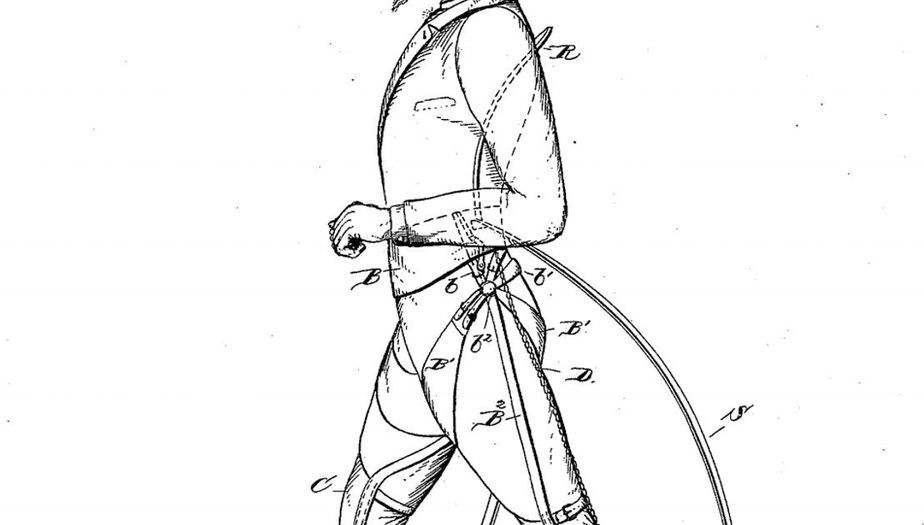
“Cycling is considered a new sport,” he says. “Ice skating is considered a separate event at the Olympic games. As technology develops and performance becomes not comparable to running, we might see this device being considered as an augmentation device that would initiate a new sport.”
As exciting as it is to look forward to a new realm of super-fast sports, there’s always the chance such technology might be used non-recreationally. Braun is aware of the potential for misuse of his spring legs by law enforcement agencies (a group who may benefit from them, per the paper’s abstract).
Braun likens the hypothetical use of his devices to the use of Segways by police forces. They allow for more mobility. But making sure they’re used ethically, is still an open question.

Sediment layers in rock or tree rings can hold clues to what the environment was like at different times in the past – and the same idea may even apply to your own teeth. Scientists at New York University have found that the material that makes up tooth roots preserves a lifelong record of stresses on the body, such as childbirth, illness, and even prison time.
While most of a tooth doesn’t grow once it’s popped up in your jaw, the tissue around the roots do. Known as cementum, this stuff regularly adds new layers after the tooth surfaces. And for this study, the researchers investigated the hypothesis that major physiological events would leave their mark in these layers.
To test the idea, the team examined 47 teeth from 15 different people, between the ages of 25 and 69. The life histories of all of these people were known, including things like whether they’d given birth, had major illnesses or even moved from rural to urban areas. Crucially, they also knew what ages these events had occurred.